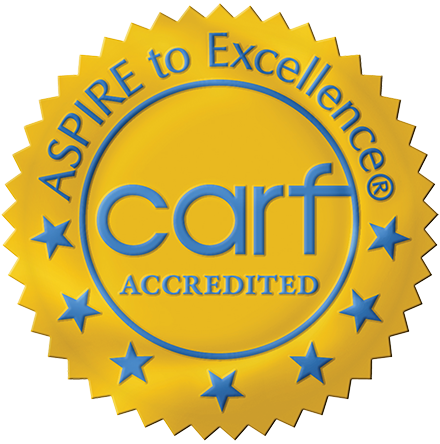Choosing the right detox program represents one of the most important decisions you’ll make in your recovery journey. With numerous options available, understanding how to evaluate programs ensures you receive the highest quality care tailored to your specific needs. The right choice can make the difference between a successful foundation for recovery and a disappointing experience that delays your progress.
Essential Accreditation and Licensing Requirements
Before considering any other factors, verify that potential detox programs maintain proper licensing and accreditation. These credentials serve as your first line of protection, ensuring the facility meets established safety and quality standards.
State licensing represents the minimum requirement for operating a detox program. Each state maintains specific regulations for addiction treatment facilities, covering everything from staffing requirements to medical protocols. Ohio requires detox programs to meet strict standards before granting operational licenses.
The Joint Commission accreditation provides an additional layer of quality assurance. This independent organization evaluates healthcare facilities against rigorous standards that often exceed state requirements. The Joint Commission’s “Gold Seal of Approval” indicates that a facility has demonstrated commitment to continuous quality improvement and patient safety.
CARF (Commission on Accreditation of Rehabilitation Facilities) accreditation specifically focuses on addiction treatment services. CARF evaluates programs based on their effectiveness, quality of care, and commitment to person-centered treatment approaches. This accreditation demonstrates expertise in addiction treatment specifically.
NAATP (National Association of Addiction Treatment Providers) membership indicates a facility’s commitment to ethical practices and industry standards. While not an accreditation, NAATP membership suggests the program maintains professional standards and stays current with industry developments.

Key Questions to Ask When Evaluating Programs
Asking the right questions helps you gather essential information about potential detox programs. These inquiries should focus on safety, quality of care, and alignment with your specific needs.
Staff qualifications represent a crucial factor in program quality. Ask about the medical director’s credentials, nursing staff qualifications, and availability of specialized addiction medicine expertise. Board certification in addiction medicine or addiction psychiatry indicates advanced training in managing withdrawal symptoms and complications.
Treatment philosophy and approaches vary between programs. Some facilities emphasize medical stabilization, while others incorporate holistic or alternative approaches. Understanding a program’s philosophy helps determine whether it aligns with your preferences and beliefs about recovery.
Length of stay policies affect your detox experience and planning. Some programs maintain fixed timeframes, while others individualize length of stay based on progress and needs. Understanding these policies helps you plan accordingly and set appropriate expectations.
Family involvement policies vary significantly between programs. Some facilities encourage family participation, while others restrict contact during the initial stabilization period. If family involvement is important to you, choose a program that accommodates your preferences.
Aftercare planning demonstrates a program’s commitment to your long-term success. Ask about how the facility helps transition patients to ongoing treatment and what resources they provide for continued recovery support.

Understanding Insurance Coverage and Verification
Insurance coverage for detox services has improved significantly due to mental health parity laws, but understanding your specific benefits remains crucial for making informed decisions.
Most major insurance plans now cover addiction treatment services, including detox, at levels similar to other medical conditions. However, coverage details vary significantly between plans, making verification essential before admission.
In-network versus out-of-network benefits can dramatically affect your out-of-pocket costs. In-network facilities have contracted rates with your insurance company, typically resulting in lower costs. Out-of-network facilities may still be covered, but often require higher deductibles and co-payments.
Pre-authorization requirements exist for many insurance plans. Some insurers require approval before admission to detox programs, while others allow retroactive approval. Understanding these requirements prevents coverage denial and unexpected costs.
Medical necessity criteria determine whether your insurance will cover detox services. Insurance companies evaluate factors like substance use severity, previous treatment attempts, and medical complications to determine coverage approval.
Many detox programs offer insurance verification services that contact your insurance company directly to determine coverage details. This service is typically free and helps you understand exactly what you’ll owe before admission.
Comparing Hospital-Based and Residential Detox Programs
Understanding the differences between hospital-based and residential detox programs helps you choose the most appropriate level of care for your situation.
Hospital-based detox programs provide the highest level of medical supervision and are equipped to handle severe complications. These programs typically have physicians available around the clock and access to advanced medical equipment and specialized services.
Hospital programs often accommodate individuals with complex medical conditions or those at high risk for severe withdrawal complications. If you have heart disease, diabetes, or other serious medical conditions, hospital-based detox may be necessary.

Residential detox programs operate in non-hospital settings but still provide 24-hour medical supervision. These facilities often offer a more comfortable, home-like environment while maintaining appropriate medical oversight.
Residential programs may provide more personalized attention and longer lengths of stay when medically appropriate. They often incorporate therapeutic activities and begin introducing treatment concepts during the detox process.
The choice between hospital-based and residential detox should be made in consultation with medical professionals who can assess your individual risk factors and medical needs.
The Importance of Location in Treatment Selection
Geographic considerations affect multiple aspects of your detox experience and should factor into your decision-making process.
Staying close to home offers advantages like family support and familiarity with local resources. Family members can visit more easily, and you may feel more comfortable in a familiar geographic area.
However, traveling for treatment can provide beneficial distance from triggers and negative influences in your home environment. Some people find that geographic separation helps them focus more completely on their recovery.
Consider practical factors like insurance network coverage, which may vary by geographic region. Some insurance plans have limited provider networks that affect your options in different areas.
Transportation logistics matter both for initial admission and for family visits during treatment. Consider whether you’ll need flight arrangements, ground transportation, or other logistical support.
Local climate and environment may affect your comfort and treatment experience. Some people find that certain environments promote healing and recovery more effectively than others.
Evaluating Medical Staff Credentials and Experience
The qualifications and experience of medical staff directly impact the quality and safety of your detox experience.
Look for board-certified physicians with specific training in addiction medicine. The American Board of Addiction Medicine certifies physicians who have completed specialized training in addiction treatment and withdrawal management.
Nursing staff should have experience in addiction treatment and medical detox. Some nurses pursue additional certification in addictions nursing, demonstrating specialized knowledge and commitment to the field.

The availability of psychiatric professionals becomes important if you have co-occurring mental health conditions. Look for programs with psychiatrists or psychiatric nurse practitioners experienced in treating dual diagnosis patients.
Staff-to-patient ratios affect the quality of care you’ll receive. Programs with appropriate staffing levels can provide more individualized attention and respond more quickly to changing needs.
Continuing education and training programs indicate a facility’s commitment to maintaining current knowledge and skills. Ask about how the program ensures staff stay updated on best practices and new developments in addiction medicine.
Understanding Treatment Philosophy and Approaches
Different detox programs operate from varying philosophical perspectives, and finding alignment with your preferences can enhance your experience and outcomes.
Medical model programs focus primarily on stabilization and withdrawal management. These programs emphasize safety and comfort while preparing patients for ongoing treatment elsewhere.
Holistic programs may incorporate complementary approaches like nutrition counseling, exercise, meditation, or alternative therapies alongside medical care. If these approaches appeal to you, look for programs that offer integrated holistic services.
Some programs begin introducing therapeutic concepts during detox, while others focus solely on medical stabilization. Consider whether you prefer early therapeutic involvement or want to focus exclusively on physical recovery during detox.
Trauma-informed care has become increasingly important in addiction treatment. Programs that understand the relationship between trauma and addiction may be particularly beneficial if you have a history of traumatic experiences.
Faith-based programs integrate spiritual components into their approach. If spirituality is important to your recovery, seek programs that honor and incorporate these beliefs.
Preparing for Admission and What to Expect
Understanding the admission process helps reduce anxiety and ensures you’re properly prepared for your detox experience.
Pre-admission assessments typically occur by phone and gather information about your substance use, medical history, and immediate needs. This information helps determine whether the program is appropriate for your situation.
Required documentation usually includes identification, insurance information, medication lists, and relevant medical records. Gathering these documents in advance streamlines the admission process.
Personal items policies vary between programs. Most facilities allow basic personal items but restrict electronics, certain medications, or valuable items. Understanding these policies helps you pack appropriately.

Arrival procedures typically include final assessments, paperwork completion, and orientation to the facility. Allow extra time for these processes, especially if you’re traveling from a distance.
Initial medical evaluations occur shortly after admission and may include blood tests, physical examination, and review of medications. These assessments help create your individualized treatment plan.
The Continuum of Care from Detox to Treatment
Quality detox programs recognize their role as the first step in a longer recovery process and work to ensure smooth transitions to ongoing care.
Discharge planning should begin early in your detox stay, with staff helping identify appropriate continuing care options based on your needs and preferences. This planning prevents gaps in care that could lead to relapse.
Treatment referrals should be based on your specific needs rather than financial relationships between facilities. Quality programs prioritize your best interests when making recommendations.
Insurance coordination for continuing care helps ensure seamless transitions without coverage gaps. Many programs assist with obtaining authorization for ongoing treatment services.
Family education and involvement in discharge planning helps ensure you have appropriate support when leaving detox. This may include education about ongoing treatment recommendations and relapse prevention strategies.
Follow-up services vary between programs but may include brief check-ins or referral assistance. These services demonstrate ongoing commitment to your recovery success.
How The Bluffs Meets Your Selection Criteria
At The Bluffs Addiction Campuses, we understand that choosing the right detox program requires careful consideration of multiple factors. We maintain all necessary licensing and accreditations, ensuring you receive care that meets the highest industry standards.
Our experienced medical team includes board-certified physicians and specialized nursing staff with extensive experience in addiction medicine and withdrawal management. We provide 24-hour medical supervision in a comfortable, supportive environment that promotes healing and recovery.
We work with most major insurance plans and provide transparent information about coverage and costs before admission. Our admissions team conducts thorough insurance verifications to help you understand your benefits and any out-of-pocket expenses.
Our approach emphasizes both medical excellence and compassionate care, recognizing that detox is just the beginning of your recovery journey. We work closely with ongoing treatment programs to ensure seamless transitions and continued progress toward your recovery goals.
Take the first step toward recovery by calling The Bluffs Addiction Campuses today. Our knowledgeable admissions team can answer your questions, verify your insurance coverage, and help you determine if our program is the right fit for your needs. Don’t let uncertainty delay your path to recovery—we’re here to help guide you toward the care you deserve.







